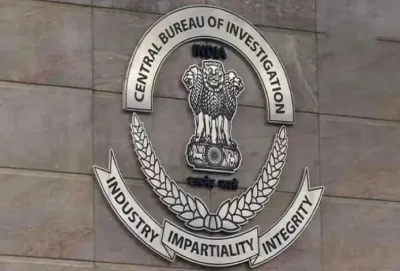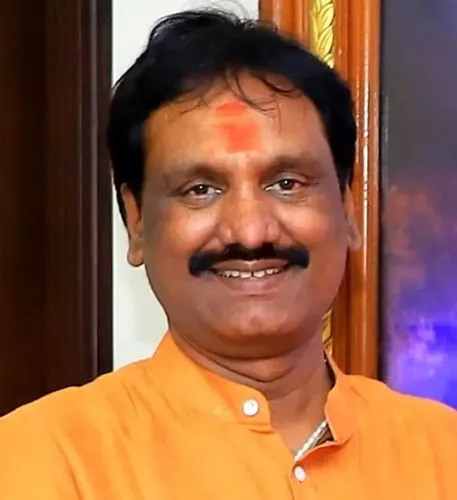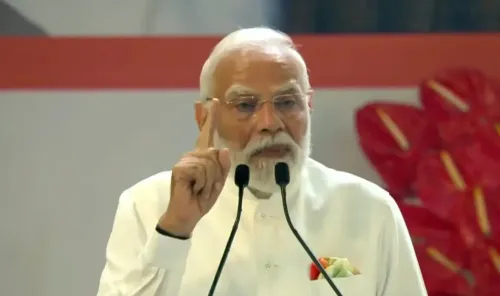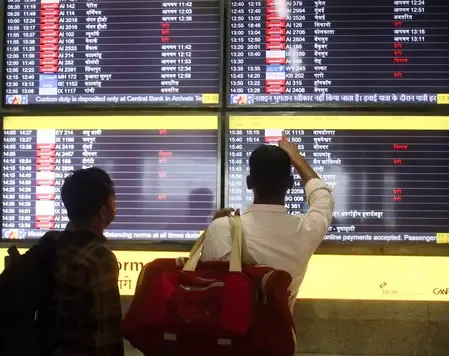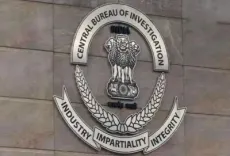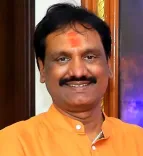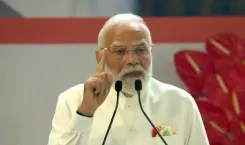Did NSA Doval Meet PM Modi Amid Rising India-Pak Tensions Over the Pahalgam Terror Attack?
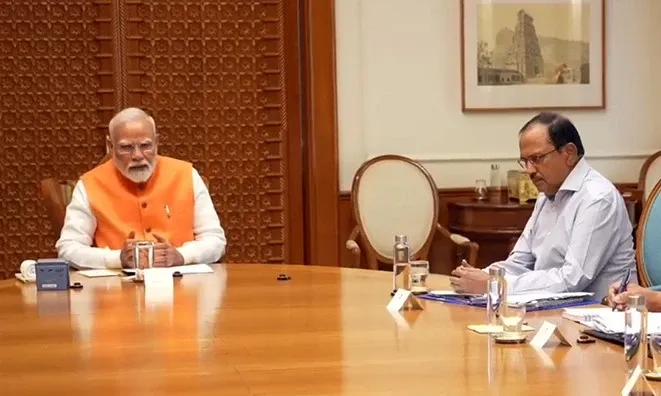
Synopsis
Key Takeaways
- NSA Doval and PM Modi held crucial discussions in response to the Pahalgam attack.
- The Resistance Front claimed responsibility for the incident.
- India's military strategy is undergoing a significant shift.
- Mock security drills are set to enhance civil defense readiness.
- The government is implementing strong diplomatic countermeasures against Pakistan.
New Delhi, May 6 (NationPress) The National Security Advisor Ajit Doval had a crucial meeting with Prime Minister Narendra Modi on Tuesday, marking their second discussion within 48 hours, as tensions with Pakistan escalate following the Pahalgam terror attack in Jammu and Kashmir that resulted in 26 casualties.
These urgent consultations come just before nationwide mock security exercises scheduled for Wednesday, the first of their kind since the 1971 war, aimed at enhancing civil defense readiness against potential threats.
In recent days, the Prime Minister has convened several high-stakes meetings with Defence Minister Rajnath Singh, NSA Doval, Chief of Defence Staff General Anil Chauhan, and the heads of the Army, Navy, and Air Force, significantly ramping up discussions regarding a military response to the Pahalgam incident.
The Resistance Front, a proxy entity of the Pakistan-based Lashkar-e-Taiba, has claimed responsibility for the April 22 attack, which stands as the deadliest terror assault in India since the 2019 Pulwama tragedy that resulted in the deaths of 40 CRPF personnel.
Sources from the government suggest that in a pivotal meeting last week, the Prime Minister approved giving the Indian armed forces complete operational autonomy to decide the nature, timing, and targets of India's military response. These developments indicate a decisive shift in India's approach to cross-border terrorism stemming from Pakistan.
To further solidify India's defense stance, Air Chief Marshal A.P. Singh met with PM Modi at his residence on Sunday. This high-level discussion, lasting 45 minutes, marked the second engagement between the Prime Minister and military leaders in a 24-hour period. The day before, PM Modi had detailed talks with Admiral Dinesh K. Tripathi, the Chief of the Naval Staff.
The government has consistently asserted that the Pahalgam attack was orchestrated with the active involvement of Pakistan's deep state, which has a longstanding record of supporting cross-border terrorism.
In light of the accumulating evidence, India has rolled out a series of robust diplomatic and strategic countermeasures. These include revoking visas for Pakistani nationals, halting cultural and trade interactions, deporting Pakistani citizens from Indian territory, and suspending the 65-year-old Indus Waters Treaty.
Additionally, India has closed the Attari-Wagah border crossing and restricted its airspace to Pakistani commercial flights.
Indian authorities have indicated a solid connection between the assault and terror organizations backed by the Pakistani establishment.
The ongoing ceasefire breaches along the Line of Control, with unprovoked firing from Pakistani positions for the past 12 days, have further exacerbated the already volatile situation. The Indian Army has responded appropriately to these violations.
In his initial public comments following the Pahalgam attack, PM Modi conveyed a stern message, stating, "The terrorists, their handlers, and their backers will be pursued relentlessly."

